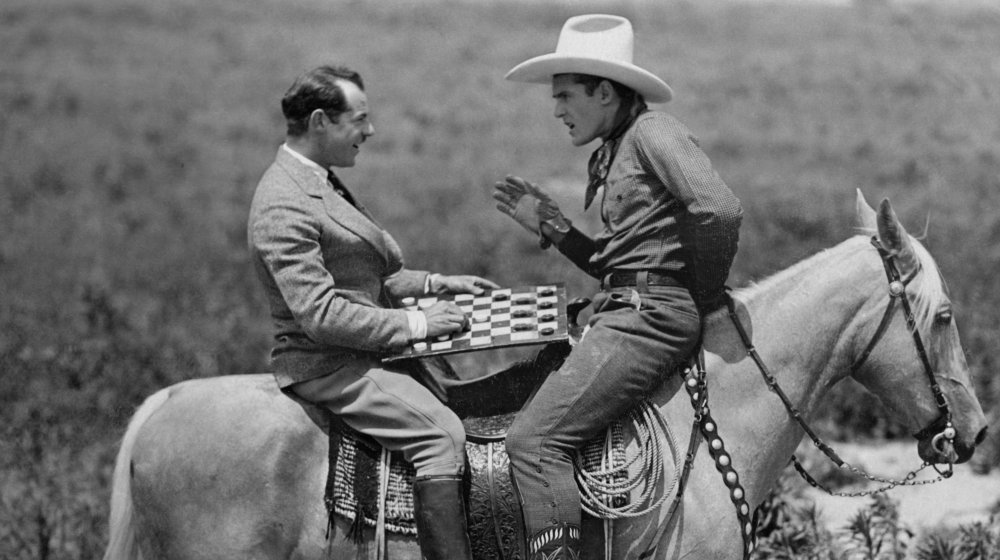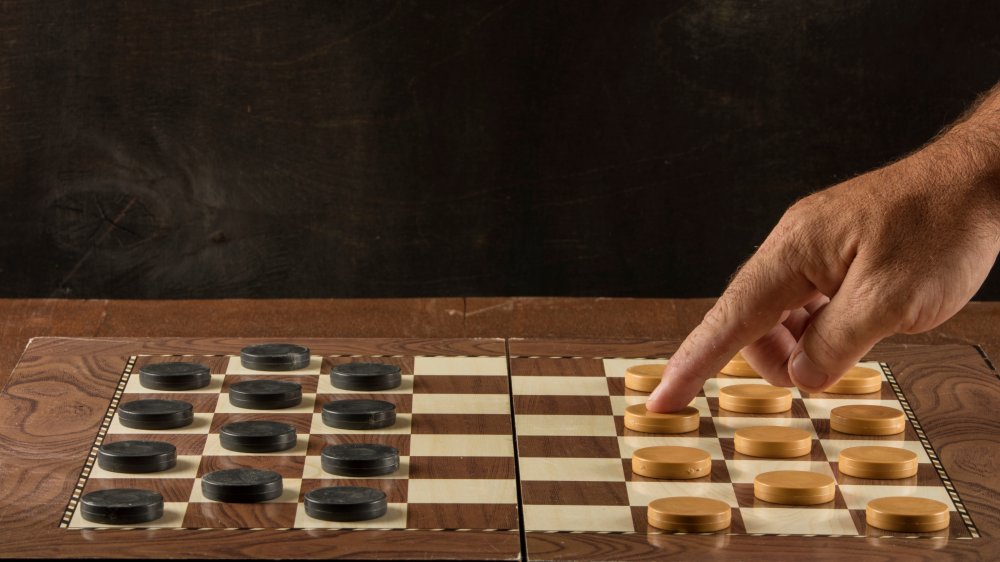The Ancient Board Games That Inspired Checkers
"Nothing comes from nothing," Maria and Captain von Trapp sang to each other in The Sound of Music. There's a long evening or 20 of philosophical meandering in that sentence, but for the moment we'll stick to the board game checkers: Just about everybody knows what it is, but where did it come from? How important is it? Richard Nixon talked about his daughter's dog, Checkers, in a campaign speech detailing his personal finances. The pooch was a campaign donation, sort of, from an admirer. Checkers was a black-and-white spotted cocker spaniel, Nixon's kids loved it, and no matter what the critics said, Nixon declared they were keeping it, reports Mental Floss. It's now known as The Checkers Speech. (Black-and-white spots. Checkers. There's a connection.)
Checkers as we know it today isn't known that way in Europe, where it's called draughts (and pronounced "drafts," because Europe, right?). Like a lot of things, checkers (the game, not the dog) evolved from other, older games in other, older places. How much older? Checkers History mentions artifacts that are within spitting distance of what we know as checkers (unless you're in Europe, but we already covered that) that are carbon dated to about 3000 BCE. Wonderopolis places the game in the ancient city of Ur, in what's how Iraq.
Checkers and its variants have been around for thousands of years
Listverse mentions a passtime called alquerque, which was played in Egypt around 1400 BCE with a five-by-five-squares board. Like today's checkers, alquerque involved two players, each with 12 pieces. But what we know as checkers today didn't really start to take shape until about 1100 CE, as World Championship Checkers points out. It popped up in southern France, with a board and some naming borrowed from chess. It continued to evolve — "crowning" was introduced after about 200 years, and in another 200 years, checkers included the rule of "mandatory taking."
Besides calling it by a different name, some players in Europe and Asia use checker boards that utilize 100 spaces, as opposed to the U.S. of A.'s 64. And in some parts of Canada, the board spaces number 144. Which would certainly make it more complicated. Maybe they have more time to kill. But then, don't we all, lately?

